
Jesus' Last Words by Deborah Beach Giordano
What Sayest Thou?
The last words said to have been spoken by Jesus from the cross are not the same in all of the Gospels. John gives us the calm voice of One who knows and understands that all is well: “It is completed.” (Basically stating: “My work here is finished.”)
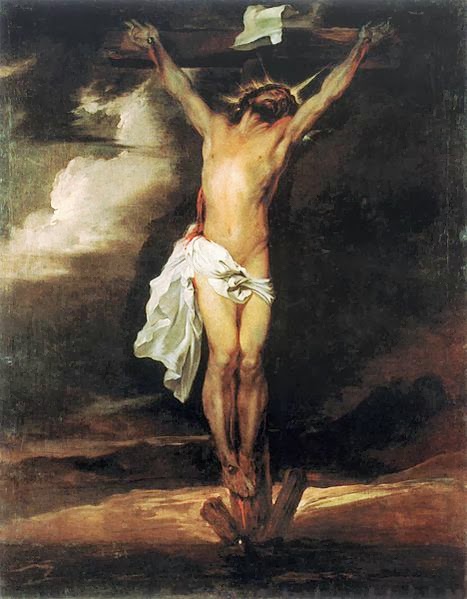 Luke reports that he uttered a verse from Psalm Thirty-One. It is an affirmation that — despite rejection and betrayal, scorn and suffering — Jesus trusted in God to the very end.
Luke reports that he uttered a verse from Psalm Thirty-One. It is an affirmation that — despite rejection and betrayal, scorn and suffering — Jesus trusted in God to the very end.
But Mark, the earliest of the Gospels, tells us that, in his final agony, the Lord cried out: “My God, my God! Why have you forsaken me?”
It is a cry from the heart. Jesus is hurting, suffering: the physical pain is excruciating, but far worse is the sense of ultimate betrayal. It is an accusation flung at God from the cross: “How could You let this happen?” This isn’t right. Things aren’t supposed to be like this; it should have worked out differently.
For me, this is the moment that Jesus is most clearly our redeemer: the One who absolutely understands us flesh and blood mortals — as we are. These words feel real and true; they reveal the genuine experience of human suffering.
When events turn against us, when tragedies and sorrows strike, we are hurt, sad, confused, agonized. We are overwhelmed not only by the pain and loss of misfortune — but by a sense of betrayal; by the injustice of the thing.
It is the wrong-ness that strikes us as particularly terrible.
It isn’t fair. And that seems to hurt the most.
A Just Judge?
The prophets and psalmists proclaim God to be all-righteous and just, fair and clear-sighted. If God is the judge of the world, everything should be resolved perfectly.
We are told that, in some of his last earthly remarks, Jesus seems to say as much, “Now the world is judged; now the ruler of this world will be driven out.” ~ John 12:31
Now you’re gonna see something.
Evil shall be condemned, and goodness shall reign over all.
Just watch this space.
And the Lord was betrayed, abandoned, condemned, mocked, abused, crucified.
So much for righteousness and justice.
“My God, my God! Why have you forsaken me?”
In that moment, with these words, I love Jesus more than at any other of his ministry. He gets it; He understands. He’s outraged and angry at the Way of the World: He speaks for me.
What the hell is going on around here?! This isn’t right!
He yells at God on my behalf; on behalf of all who suffer — in pain, grief, and confusion.
Lingering Questions
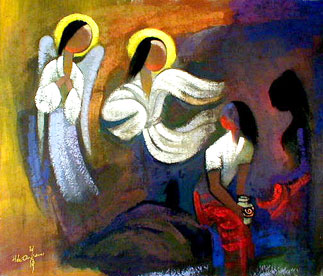 And then, of course, there is Easter: the definitive judgment pronounced against death and worldly powers. We rejoice and are inspired and invigorated by The Magnificent Reset.
And then, of course, there is Easter: the definitive judgment pronounced against death and worldly powers. We rejoice and are inspired and invigorated by The Magnificent Reset.
Yet life continues, seemingly as it was.
Unpredictably. Often unfairly, painfully, distressingly. Bad things happen to good people, and evil-doers thrive and prosper.
“Now the world is judged; now the ruler of this world will be driven out.”
Disappointingly, tragically, “the ruler of this world” is still doing quite nicely, thank you; still partying down, eating fine foods, selling “justice” and authority to the highest bidder, still exploiting the vulnerable, abusing the weak, silencing the opposition; still ruling this world.
What the hell is going on around here!?
What We See, What We’re Shown
Now we see as if in a mirror, dimly; then we shall see face to face. Now I know in part; then I shall know fully, even as I am fully known.
~ 1 Corinthians 13:12
"Yes, we have seen the Gospel Promise, wondrously alive and enlivening; each day and every minute, signs of renewal and hope glimmer in our hearts and shimmer before our eyes. And, as the apostle formerly known as Saul insisted, we see only a part of the Light; as if glimpsed in a smudged mirror in a dimly lit room.
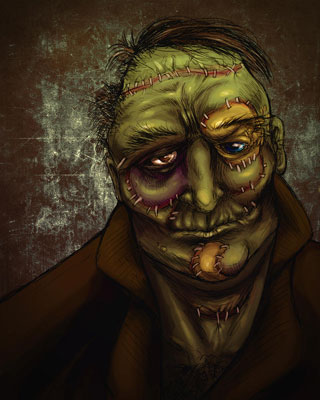 It is hard to see the good, the true, and the beautiful in the misshapen image the world presents to us: a carnival mirror distorting our desires, magnifying differences, creating distrust and divisions; a Frankenstein monster constructed from the ugliest and most vicious aspects of human behavior. “Look here!” it cries, “This is the true reality — all else are lies and fantasies!”
It is hard to see the good, the true, and the beautiful in the misshapen image the world presents to us: a carnival mirror distorting our desires, magnifying differences, creating distrust and divisions; a Frankenstein monster constructed from the ugliest and most vicious aspects of human behavior. “Look here!” it cries, “This is the true reality — all else are lies and fantasies!”
Daily we are challenged to surrender our hope, our faith in one another, our belief in a Divine spark of goodness in humankind. It is the ongoing struggle of wickedness and despair for mastery of our souls; the battle of hate and death against love and life.
Profiles in Courage
We can become the people the world would have us accept as true: grasping, vengeful, isolated and estranged — and ever-so-easy to control and dominate; or we can follow the Way of the Lord Christ: as a community of compassionate, caring, generous souls, joining together to bless and to heal.
The choice may seem obvious. But it is not easy.
To love in a time of hate can generate the most ferocious, determined opposition.
The lure of “the many” is powerful; human beings are essentially communal: we want to belong. To stand apart from the crowd feels very lonely and vulnerable, an easy target for snarling enemies. To speak out is to utter a cry in the wilderness: inspiring the faithful, inciting the hateful — and risking the crushing, merciless violence of the mob.
Controlling Crowds
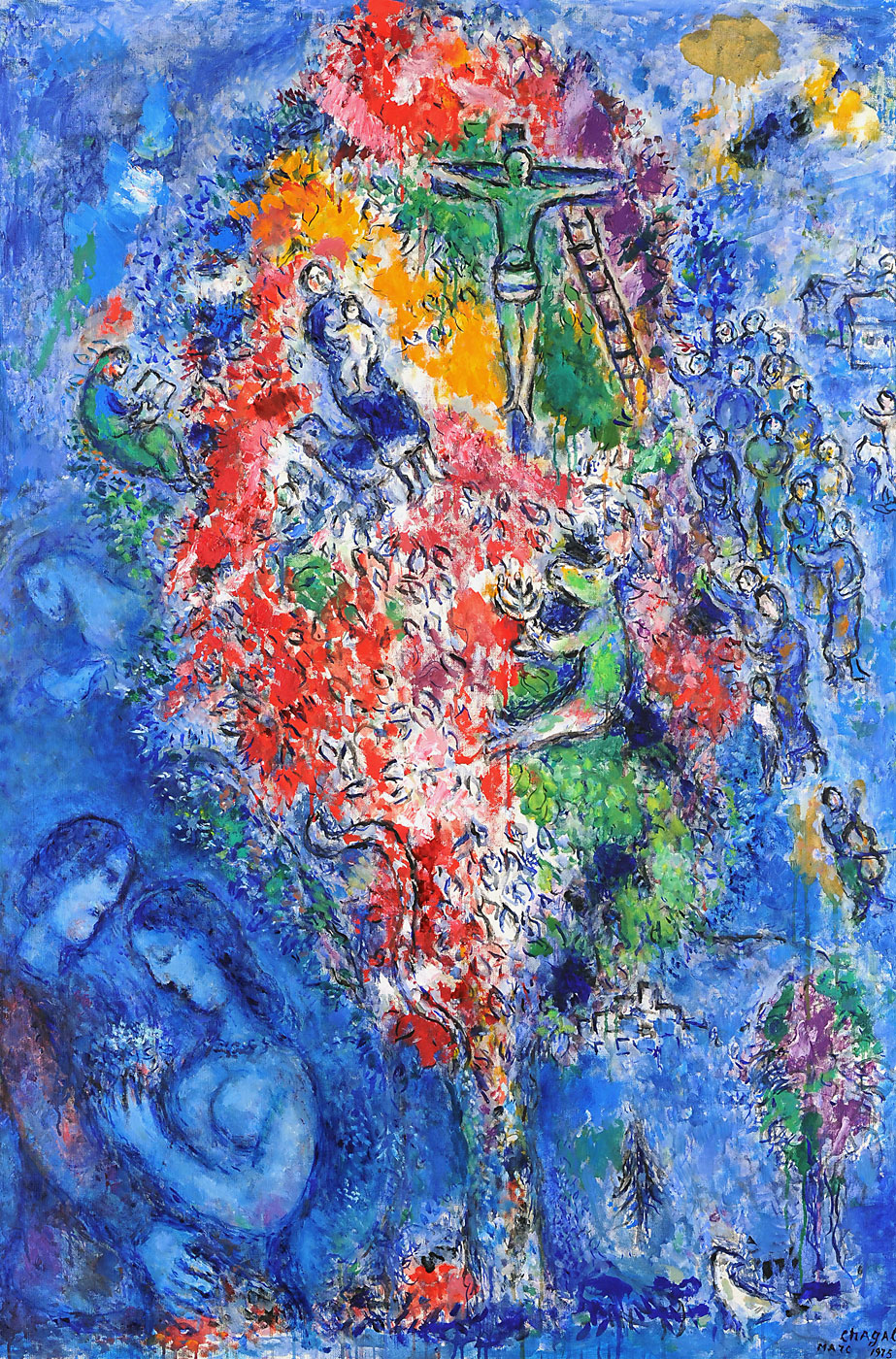
There is no better illustration of the lethal power of the madness (and bloodlust) of crowds than the events of that evil day:
“What then should I do with Jesus who is called Christ?” Pilate asked. They all answered, “Crucify Him!” “Why?”asked Pilate. “What evil has He done?”But they shouted all the louder, “Crucify Him!” When Pilate saw that he was accomplishing nothing, but that instead a riot was breaking out, he took water and washed his hands before the crowd. “I am innocent of this man’s blood,” he said. “You bear the responsibility.” All the people answered, “His blood be on us and on our children!”
~ Matthew 27:22-25
This passage is not a condemnation of the Jewish people, but an indictment of the human propensity to succumb to mob mentality. It is the result of individual and communal failure: of loss of integrity, of decency and fairness swallowed up in the madness of the crowd.
Those who have shunned and ignored “the others,” reflexively denouncing and despising people we do not know; they who have condemned another without a fair hearing, on the basis of hearsay or rumor; all who have attacked (virtually or in person) a “common enemy:” taking delight in drawing blood, in hurting and harming, tormenting and terrorizing, in cutting down and destroying a human life — and all who have watched in silence as these things take place: our number is legion. All of us are responsible for the triumphs of evil; we are all as guilty as those who cried, “Crucify him!”
In Heaven’s Name
As followers of the Lord Jesus Christ, we are to bless and not to curse, to heal and not to harm, to build up and not tear down. We are to stand apart from the howling mob; to speak words of peace and tolerance, to balance justice and mercy, to repudiate vengeance and violence; to be the compassionate, Light-bearing, joy-revealing beings that Christians are called to be.
It is not an easy task. We must live with courage and hope despite real and terrible suffering; and the forces that thrive on hatred, fear, and chaos — those corrupt, corrosive rulers of this world — will still be with us. We will still find ourselves asking, “What the hell is going on?”
And that, it turns out, can be a blessing.
When that question occurs to us, it is an opportunity to stop and look around, to pause and to listen. What are we being shown, and by whom, and what purpose does it serve? Now look again, seeking signs of beauty and tenderness, kindness and compassion, evidence of hope and human goodness — and ask: “What in heaven’s name is going on?”
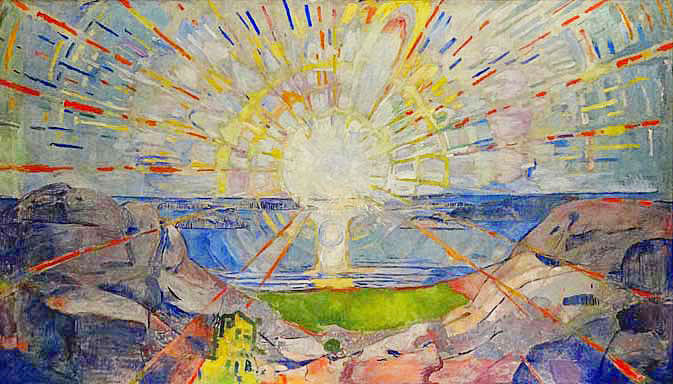
May the glorious Easter Reset fill your soul with Light, and your heart with radiant courage,
Deborah ✟
Suggested Spiritual Exercise
Take a moment at least once each day and ask:
“What in heaven’s name is going on?” and then:
“How am I helping ‘heaven’ happen?”